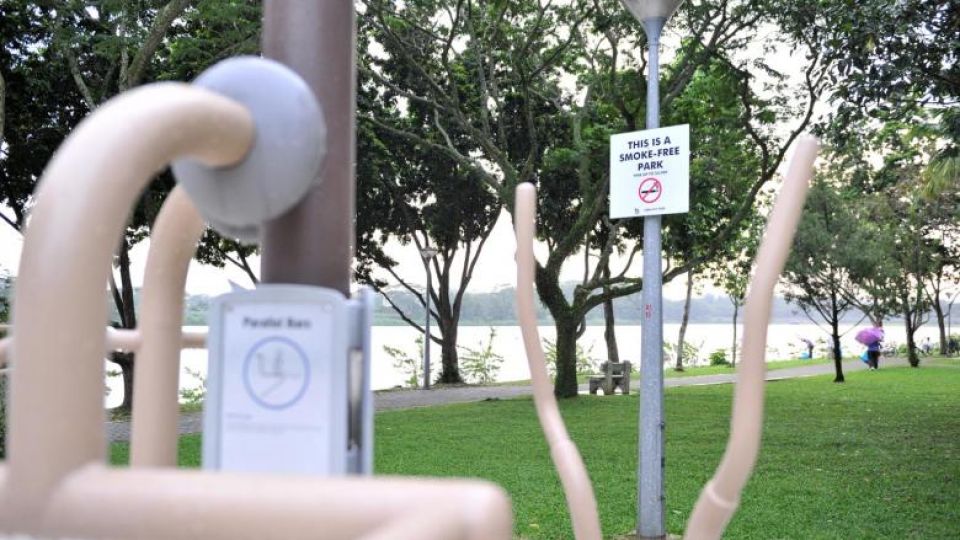March 8, 2022
SINGAPORE – Singapore’s smoking ban will be extended from July 1 to cover more areas, including all public parks and gardens, 10 recreational beaches, and sites managed by national water agency PUB under its active, beautiful and clean waters programme.
This was announced by Senior Minister of State for Sustainability and the Environment Amy Khor on Monday (March 7) during the debate on her ministry’s budget.
The ban was extended to protect Singapore against the harmful effects of second-hand smoke, said Dr Khor.
Currently, Singapore’s smoking ban covers places such as neighbourhood parks in private and public housing estates, reservoirs and nature reserves.
Smoking is also not allowed under sheltered walkways, areas within 5m of a bus stop, and void decks.
But with the expansion, smoking will from July be prohibited at the rest of public parks and gardens managed by the National Parks Board (NParks), as well as at PUB’s active, beautiful, clean waters programme.
Examples of such sites include canals and landmarks near rivers, such as the Lorong Halus Bridge. Wetlands, such as the Sengkang Floating Wetland, and areas near large drains are also included in this ban.
Smoking will also be banned at 10 beaches.
These include Changi Beach, East Coast Beach, West Coast Beach, Sembawang Beach, Pasir Ris Beach and Punggol Beach on the mainland, as well as the beach on offshore Coney Island.
Smoking will also not be allowed at Siloso Beach, Tanjong Beach and Palawan Beach on Sentosa.
When the ban kicks in on July 1, smokers will largely be able to light up only at designated smoking areas and open public spaces such as vacant land, uncovered walkways and uncovered areas on the top deck of multi-storey carparks.
They can also do so in private, such as in their own homes or cars, as long as no second-hand smoke is expelled in places where smoking is prohibited.
Dr Khor added: “With this extension, Singaporeans can enjoy these shared recreational sites without exposure to second-hand tobacco smoke.”
To provide members of the public with sufficient time to adjust, those caught smoking in the newly prohibited places will receive warnings for the first three months.
Posters and banners will also be put up at new smoke-free locations as additional visual reminders.
From Oct 1, enforcement action will begin taking effect and individuals caught smoking will be liable to a composition sum of $200 or a fine of up to $1,000 if convicted in court.
Mr Chia Seng Jiang, group director for parks at NParks, said: “Our parks, gardens and park connectors are widely used by all, young and old, for recreation and exercise purposes.”
He added: “We seek the support and cooperation of all park users to make our parks smoke-free.”
This smoking ban, administered by the National Environmental Agency (NEA) since 1992, hopes to promote a smoke-free lifestyle in Singapore and reduce the exposure of the public to second-hand smoke.
In 2021, more than 13,000 tickets were issued for smoking in prohibited areas, of which, 40 per cent of transgressions occurred near private spaces, such as common corridors, staircases, void decks and lift lobbies.
A spokesman for NEA said: “We encourage smokers to be socially responsible when smoking in public places, and not to light up in smoking prohibited places.
“The most sustainable solution is for smokers to be considerate to others, and to quit smoking for their own health, and the health of their families and of those around them.”

